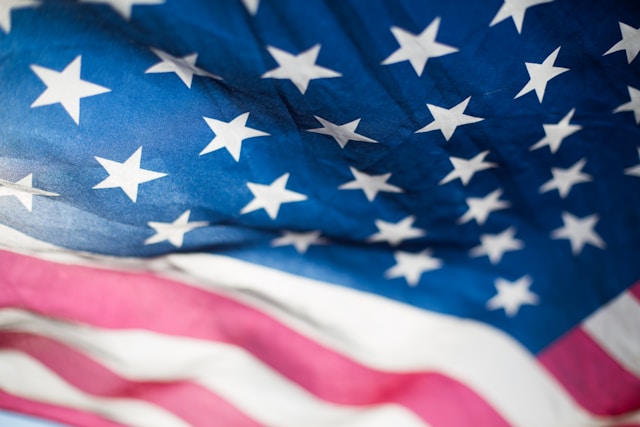History of Independence Day: Exploring the Origins and Significance

The 4th of July, or Independence Day, is a vital event in American history. It celebrates the Declaration of Independence's signing in 1776. According to this article, Britain established a new country and ended its rule over the thirteen American colonies. From and why it is essential assists us in valuing this occasion and its qualities first understanding where Freedom Day came from.
The Road to Independence
America was moving toward freedom long before 1776. The junkyards of North American (and consequently British) colonies had been brewing contempt for a long time. Most natives were outraged about the way the British taxes them without representation. They also did not appreciate having to house British soldiers in their homes and the strict trade restrictions. The colonies were not happy about being controlled by the English for so long, and this dissatisfaction was festering away over decades. The freedoms that they had been born into as a result of the British government's rules were what was really at stake, according to the colonists. This feeling of injustice triggered several events that only served to perpetuate the conflict. The spread of revolutionary ideas was rapid due to this.
Key Events Leading to the Declaration
The Boston Tea Party in 1773 was a very crucial event that showed the way Declaration of Independence. By refusing to comply with the Tea Act the colonists clearly showed their strong opposition to British economic control. His law granted the British East India Company the exclusive authority to deal with tea sales in the colonies. In response to the defiance of the American patriots, the British government imposed the Coercive Acts, also called the Intolerable Acts. The settlers had to seek alternative means of communication following the blockade and abandonment of Boston Harbor. In 1774, the colonies assembled the First Continental Congress to present a unified against British control. With the ultimate aim of liberating themselves from absolute monarchy the rare amalgamation of the colonies into a singular entity was a significant event, showcasing their readiness to collaborate against what they perceived as oppressive British imperial rule.
The Continental Congress and the Declaration
The Second Continental Congress met and provided vital support to raise more awareness for America's independence movement in May of 1775. Notably during the Battles of Lexington & Concord in April 1775 the colonial soldiers and British troops had already engaged in fighting. The Continental Congress took charge of leading the war and determining the fate of the colonies. By influential figures like Benjamin Franklin, Thomas Jefferson, and John Adams the push for independence was strongly backed. Virginian Richard Henry Lee proposed on June 7, 1776, that the colonies should break free and become independent. Thomas Jefferson, John Adams, Benjamin Franklin, Roger Sherman, and Robert R. collaborated on drafting the Declaration of Independence. Jefferson, a skilled writer, was chosen to craft a statement showing the colonists' aspirations for independence.
Adoption and Significance of the Declaration
The Continental Congress approved the Declaration of Independence on July 4, 1776. From England, his famous paper gave the reasons for which the colonies wished to break away. It posted numerous protests against King George III and said that individuals ought to be free and have something to do with their government. The starting part of the document says that all individuals are born something very similar and have freedoms that can't be removed. It is often cited and regarded as vital to American history. The act of signing the Declaration signified a pivotal moment in the liberation struggle. It brought the colonies together and provided a legitimate justification for the uprising. The document was read in public places and shared throughout the towns. It motivated the colonists and encouraged others to back the movement. Thus, it had a big impact on the principles of democracy and the history of the US.
The War for Independence
The war did not end with the signing of the Declaration of Independence, but it did begin a long and tough war. When the Treaty of Paris was signed and the US was officially acknowledged as independent the American Revolutionary War started in 1775 and finished in 1783. There were numerous locations where the war took place, and Saratoga and Yorktown were the sites of some of the most significant battles. Bringing the war to an end, and the Americans received assistance from the French at Saratoga because the British gave up to the Americans and the French at Yorktown. The war presented the new country with an opportunity to express its strength and capacity to resist the powerful British Empire. It included a lot of tough work and tough times, however, it ended with the US turning into a free country, ready to make its own choices.
The Legacy of Independence Day
Independence Day has an impact that goes far beyond what happened in the 1700s. The Declaration of Independence's concepts of freedom, fairness, and the ability to set our own rules have served as a source of inspiration for people all over the world, including Americans for a very long time. Including the fight to end slavery and give women the right to vote and the civil rights movement, these beliefs have been utilized in a diversity of struggles for equality and fairness. The Declaration says that everybody has essential freedoms and that the public authority ought to be founded on individuals' thought processes is correct. Individuals have been motivated by this to work for a society that is fair and equal. We are reminded to always uphold and promote the significant principles upon which our country was founded on Independence Day.
Modern Celebrations and Reflections
Today, individuals celebrate Independence Day with different traditions that show the country's various cultures and solidarity. Individuals frequently celebrate Independence Day with firecrackers, marches, grills, and shows. Also, some engage in quieter pursuits like reading the Declaration of Independence or going to historical locations. These events remind us of the essential principles upon which our country was founded as well as our ongoing efforts to live by them. While recalling the difficult work and achievements that have made the country what it is today they permit Americans an opportunity to join together and show pride in their country. Knowing where Independence Day comes from and why it's significant assists us in understanding and participating in the holiday more. While acknowledging that there is still work to be done it is a time to reflect on the individuals who fought for freedom, the significant concepts of fairness and freedom, and the progress that has been made. By thinking about the past and the future we can make sure that the spirit of Independence Day continues to inspire and unite people.
Conclusion
We value this extraordinary day even more now that we know how and why Independence Day is celebrated. It's a fun time to reflect on those who fought for independence and on our progress toward freedom and fairness. It's also vital to keep in mind that there is still work to be done. By reflecting on the past and the future we can make sure that the spirit of Independence Day continues to inspire and unite individuals.
Also read: Celebrating Freedom: Top Ways to Enjoy Independence Day











